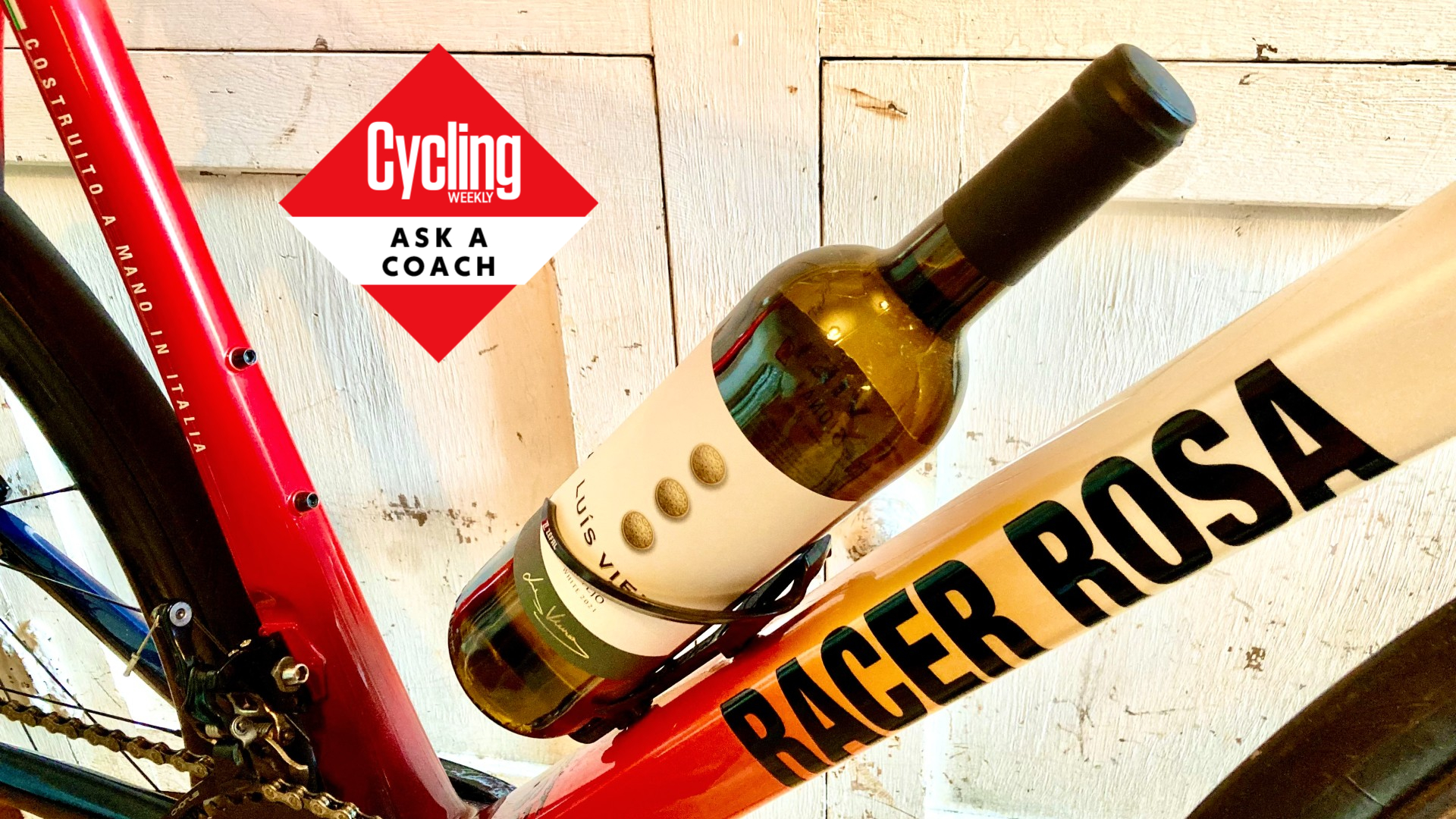
A question which more of us might be pondering in the run-up to Christmas and with the office-party season in full swing. But for whatever the reason or occasion may be, sometimes exercise in the morning after can make us feel better - or just not as bad as when we woke up. So, what is exercise actually doing for us during the dreaded hangover? Cycling coach Alex Welburn explains…
For each of us, our choice of drink may influence how bad we feel the following morning. For me personally, red wine can result in some unpleasant mornings often accompanied by a violently pounding headache, which can be the case due to some of the ingredients in wine. For others, it may be that dreaded beer, but often enough it is the mixing of alcohols that makes you feel the worst - so just keep that in mind.
What causes a hangover?
Aside from the blatantly obvious answer of alcohol, let's explore a few of the causes of that hangover feeling - and why it can leave us feeling rather rough the following morning. We’ll also cover how exercise may make you feel better - despite your motivation likely being rather low at that precise point!
Excess alcohol impacts the body in many ways
Dehydration: Probably one of the most notable symptoms, the feeling of your head absolutely pounding, grasping for water. Well, this is caused by alcohol suppressing the release of vasopressin, an antidiuretic hormone. This hormone is responsible for the conservation of fluid, hence when this is suppressed, more fluid is excreted.
Essentially, the body is trying to get rid of the alcohol, but as you are not retaining fluid, you can often find yourself in a dehydrated state as a result.
Sleep: This is one, if not the most, important factor in recovery. Whilst we may fall asleep faster while under the influence of alcohol, it actually has a rather profound impact on our sleep.
If you wear any monitoring devices that record heart rate variability, ‘sleep’ etc you will likely notice a large deviation from your ‘normal’ resting levels. Sleep is often fragmented, and your REM and non-REM cycles are often broken. In particular, it can be harder to fall into REM (deep sleep). Thus, when you wake up, you can feel very tired and groggy.
I’m sure we have all come across the saying that if you exercise you can sweat out the alcohol. Especially when considering you are already dehydrated, sweating out more fluid wouldn’t be ideal.
It is really unlikely that the exercise itself is going to improve your hangover, it’s more a case of the endorphins produced from exercise actually making you feel better. Endorphins are neurotransmitters that are released by the pituitary gland. They are responsible for a reduction in stress, and are also important in improving and regulating mood, whilst also being able to alleviate pain.
What does the research say?
One research study looked at the impact of alcohol on a 60-minute time trial, which reduced performance with a lower power output. Some research suggests that alcohol can reduce protein synthesis, which will impair your ability to recover from exercise. It can also increase cortisol which can have a negative impact on testosterone levels.
A reduction in cortisol will be one of the main reasons that you feel better during and after cycling. There are a few caveats though. If you are looking to hit a high-intensity interval session, it is very likely that this will not go that well and you won’t feel particularly great. I can speak from personal experience here, so maybe stick to a café ride rather than intervals on the turbo trainer.
What can I do to feel better If I want to go and ride?
Aside from the obvious of not drinking or drinking less, ensure you try to rehydrate adequately, particularly when on the bike. Drink something rich in electrolytes as this may reduce the hangover feeling and try to keep it easy on the bike. If it is the local club run that you don’t want to miss, try not to do much work on the front if you are feeling particularly fragile.
Fuel well! This is largely due to having low glycogen stores - and no, your energy depleted state is just a result of throwing around those moves on the dance floor from the night before (although that would contribute!).
We metabolise alcohol as ‘ethanol’ in the liver via an enzyme, and it will prioritise the removal of ethanol first as it is actually a toxin. This impacts your liver’s ability to release glucose, and thus your body ends up relying on stored glycogen.
This is also why advice is often given to consume carbohydrates before/during cycling, to minimise the depletion.
Let’s say I have had a few too many and I want to still cycle, what should I do?
In reality, you want to do enough to get the release of those endorphins to ‘feel good’ and then probably stop there and head home.
Ultimately, cycling won’t cure a hangover, but it may help relieve some of the symptoms. It will be the ‘feel good’ endorphins we get from cycling. Alcohol isn’t exactly performance-enhancing, and the effect of alcohol will vary from person to person. Will cycling cure my hangover? Unlikely. But it may make you feel a bit better than you did before.







